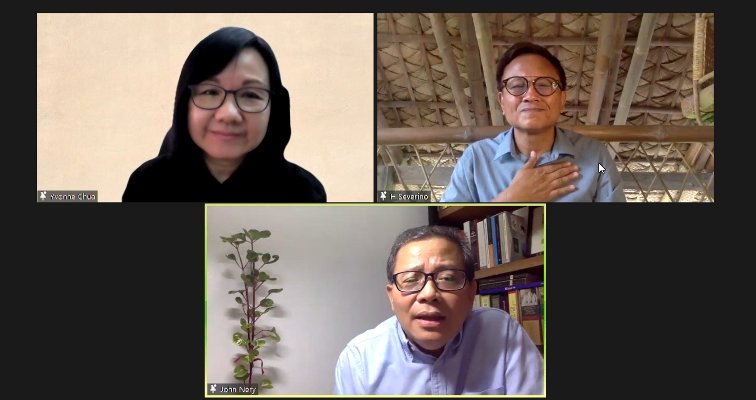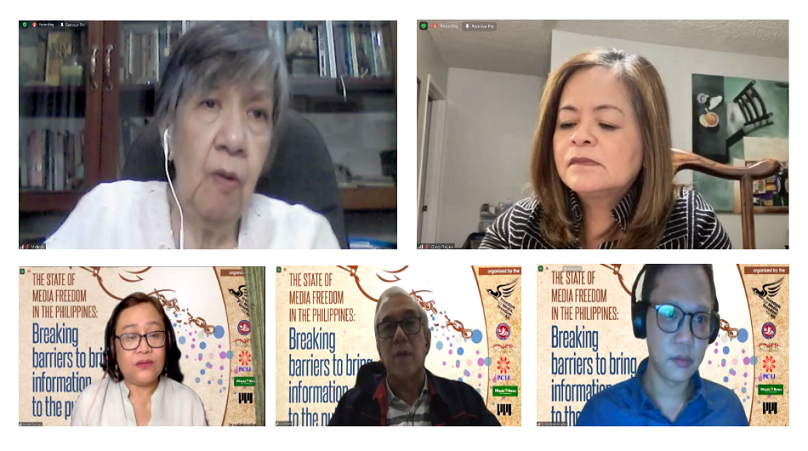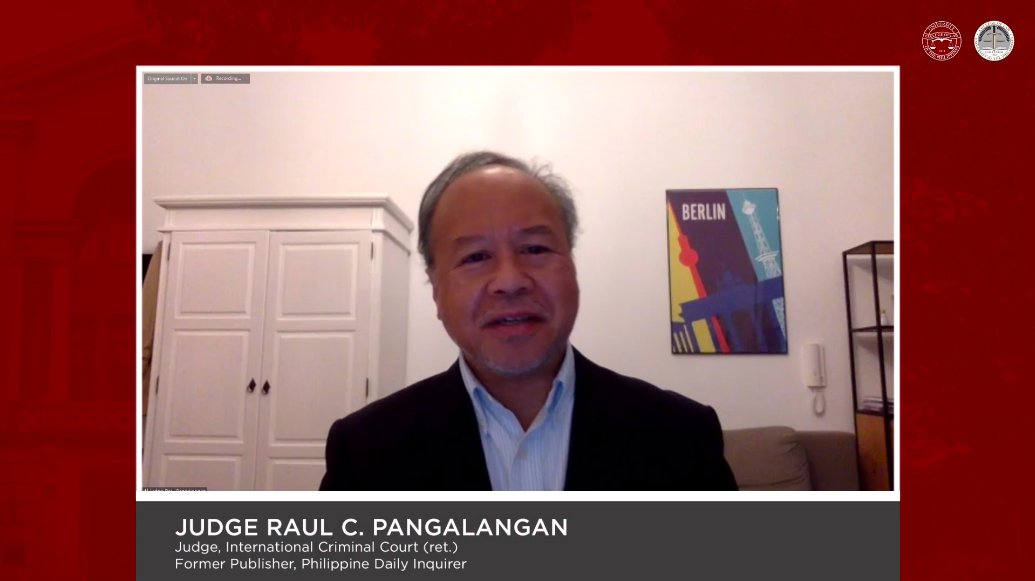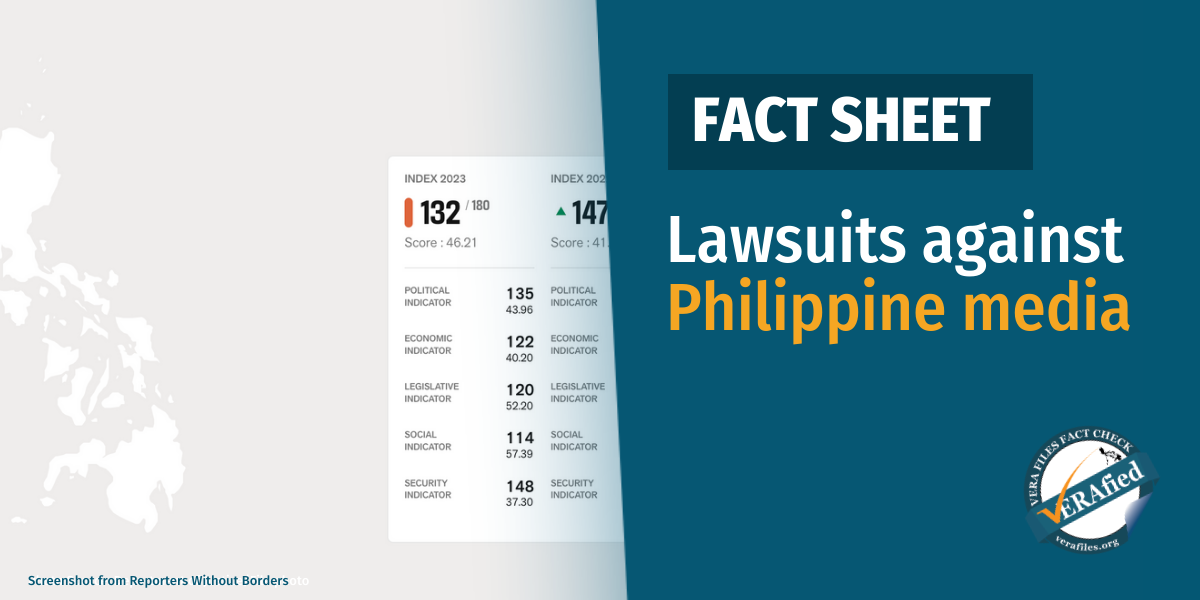Veteran broadcast journalist Howie Severino lamented on Monday, May 3, that the role of journalists in society has become more challenging as most news consumers now regard the values of truth, facts and evidence in journalism as secondary only to loyalty to a person, ideology and institution.
“We value evidence, we value facts, we value the truth. Unfortunately, in our environment — and a lot of this is fueled by technology and so many sources of information now — hindi na ganoon kataas doon sa hierarchy of values ‘yung mga values of journalism (these values of journalism don’t rank well anymore in people’s hierarchy of values) — evidence, transparency, accountability,” Severino said at an online forum organized by the Asian Center for Journalism at the Ateneo de Manila University and the US Embassy in Manila.
“What has exceeded those values, as a virtue in the minds of a lot of people who consume information, is loyalty … loyalty to a person, loyalty to an ideology, loyalty to an institution,” he asserted, adding that such blind loyalty fuels the playbook of autocrats that seek to stay in power.
“Even when you’re confronted with facts, evidence, science, if it somehow contradicts what you believe about the person, leader or organization you believe in, you will dismiss the evidence,” added Severino, a news anchor who has been known for his documentary and investigative reports on television.
The observation fits the theme for this year’s observance of World Press Freedom Day, information as a public good which, according to Audrey Azoulay, director general of the United Nations Educational Scientific and Cultural Organization (UNESCO), “underlines the indisputable importance of verified and reliable information” as it “calls attention to the essential role of free and professional journalists in producing and disseminating this information, by tackling misinformation and other harmful content.”
Severino, who chairs the board of trustees of the Philippine Center for Investigative Journalism (PCIJ), appeared in the forum with Yvonne Chua, journalism professor at the University of the Philippines and one of the founders of VERA Files. ACFJ chair John Nery moderated the discussion that began with a sharing of their experiences during the martial law years and the transition to democracy and the challenges presently confronting the journalism profession.
Severino and Chua both started their career in journalism during the last few years of the Marcos dictatorship. Fresh from college, Chua found herself writing for the alternative press, Ang Pahayagang Malaya, during which she faced the risks of getting arrested and the newspaper, being confiscated.
Chua said the role of journalists in evaluating critical information and demanding public accountability has not changed but given the challenges of fighting efforts to discredit the mainstream media, they have to “find a way to make people understand that this is what we do.”
“If the public is now aware of what we’re doing, we’re partly to blame. With all the moves to discredit journalists, it doesn’t help if we keep silent,” she said.
For Severino, the role of journalists in society has “evolved to being kind of guides or shepherds.” He added: “We help identify what should be believed and what should not. That’s why we have to sift through all this whole universe of people claiming to be experts.”
Amid the coronavirus disease 2019 (COVID-19) pandemic when most information is controlled by the government, with the gruesome killings and unjust arrests of media practitioners shaking the media landscape, Severino and Chua reminded journalists to continue the tradition of seeking the truth and demanding accountability.
They said it is crucial to sustain a brand of journalism that remains loyal to public interest despite restricted access to information and threats against journalists’ safety.
Despite these weak points, Severino said he believes that press freedom is not deteriorating, but has been threatened.
“Having been a journalist during the martial law era, it just reminds me that there are risks worth taking as journalists, as a journalist in the pursuit of truth and information because you could see how it can empower and liberate a nation,” Chua said.
“Freedom in general ebbs and flows… we do know that there are also lots of threats to this freedom and many people have been deprived of this freedom,” Severino said, citing the shutdown of giant news network ABS-CBN last year, the lawsuits that Rappler faces, and the gruesome killings of media workers across the country.
Chua said: “If you look at the numbers, they show that democracy in the country and press freedom are on the decline.”
Trust in Philippine media has been recorded at its lowest in 2020, according to the 2020 Reuters Institute Digital News Report.
To combat this eroding trust in news and truthful information, the UNESCO advocates strengthening media and information literacy (MIL) across the globe to equip the public in combating mis- and disinformation.
Through MIL, UNESCO believes people will be empowered with skills such as how to:
- Find credible online information
- Evaluate credibility of online information
- React to attempts in shaping public opinion and perception through social media and advertising
- Search and understand their information needs
- Use and contribute accurate information and media content
Chua, otherwise, sheds light on making sure to deliver fair and balanced information to continue holding those in power accountable, especially public officials who make false and misleading claims and baseless allegations.
“I do believe somehow in strategic delay — strategic delay to enable you to demand from the source or public official [a] proof, basis for their allegation or their claim. Failing to provide that, [it is best] to actually include in the story right away that they offer no proof,” said Chua.
She also recommended giving ample space to those accused to speak for themselves.
“We need counter speech in this instance, and one of the most effective forms of counter speech is to get the person, who has been accused of, to respond. We don’t want data voids or data deficits. We have to have something that’s permanently there, of record, to show counter speech as well,” Chua added.
Chua said she remains hopeful that the Philippine press can still bounce back. “During these times, I also look back and say that in many chapters of our history we have lost our freedoms and regained them. I believe that Filipinos, in general, and journalists (in particular) are a resilient lot. We will not let those freedoms just be eroded, chipped away. Somehow, we will bounce back and reclaim them and continue to fight against threats to our freedoms and to democracy.”



